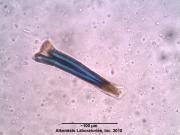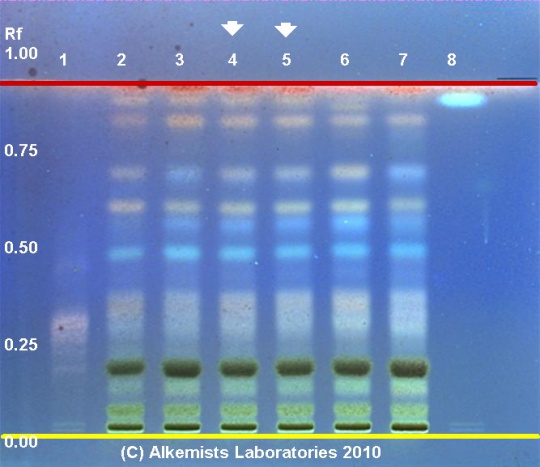Glycine max (bean)
(Nomenclature updated) |
|||
| Line 1: | Line 1: | ||
| + | =Nomenclature= | ||
| + | {{nomenclature | binomial=Glycine max | ||
| + | |authority=Merr. | ||
| + | |family=Fabaceae | ||
| + | |scn=soy bean | ||
| + | |syn= | ||
| + | |aka= | ||
| + | |notes=}} | ||
=Introduction= | =Introduction= | ||
=Macroscopic Entries= | =Macroscopic Entries= | ||
Revision as of 04:48, 27 February 2014
Contents |
Nomenclature
Glycine max Merr. Fabaceae
Standardized common name (English): soy bean
Introduction
Macroscopic Entries
Microscopic Entries
|
HPTLC Entries
|
Soy (bean) (Glycine max) Lane Assignments Lanes, from left to right (Track, Volume, Sample):
Reference materials used here have been authenticated by macroscopic, microscopic &/or TLC studies according to the reference source cited below held at Alkemists Laboratories, Costa Mesa, CA. Stationary Phase Silica gel 60, F254, 10 x 10 cm HPTLC plates Mobile Phase ethyl acetate: Acetic acid: CH3OH: H2O [6/1.5/1.5/1] Sample Preparation Method 0.3 g + 3 ml 70% grain EtOH sonicate/heat @ 50° C ~ 1/2 hr Detection Method Vanillin/H2SO4 Reagent -> 110° C 5 min -> UV 365 nm Reference see Method Developed by Alkemists Laboratories
|
Other Points of Interest
Cite error: <ref> tags exist, but no <references/> tag was found


